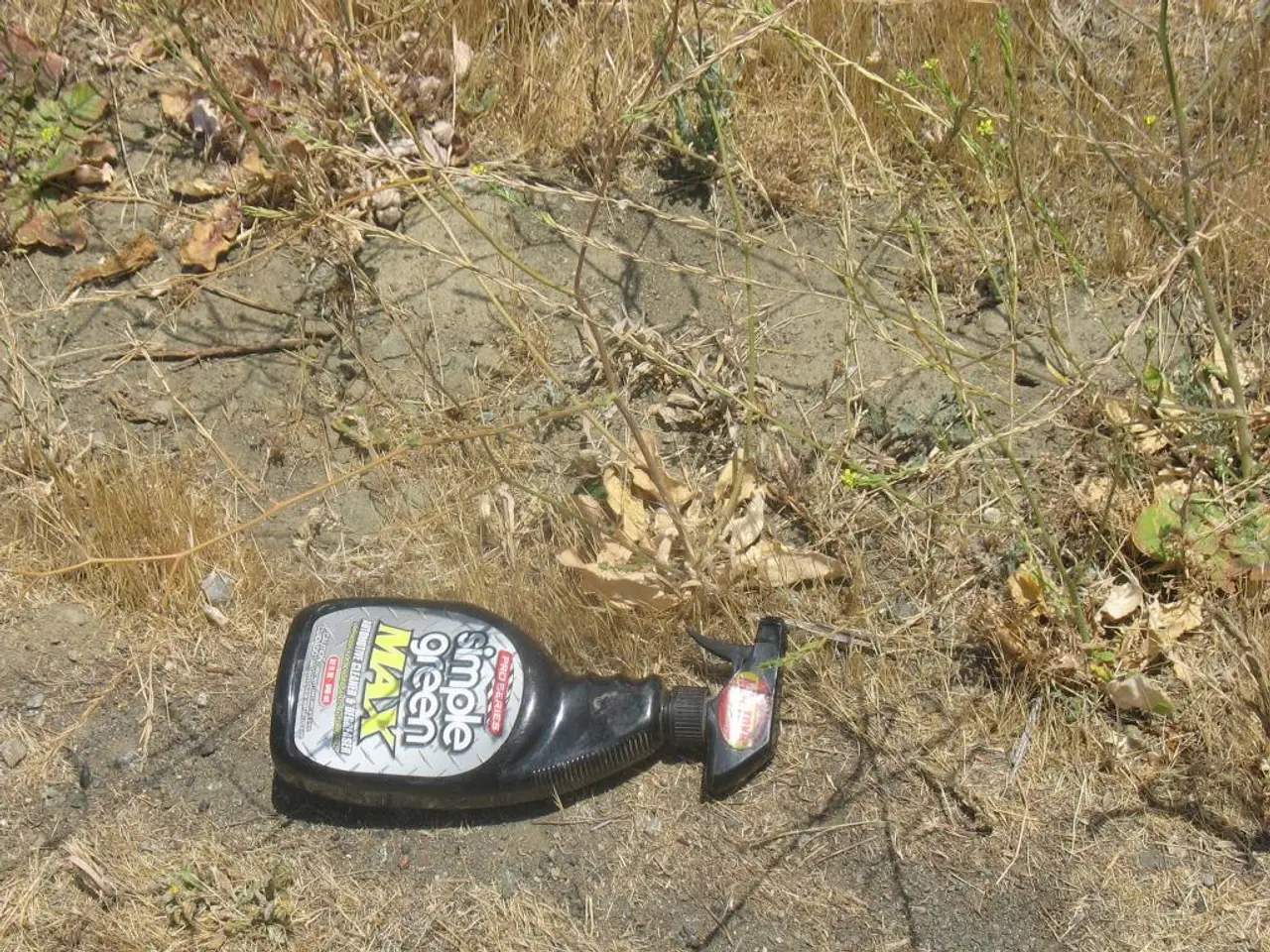Utilizing urine as an organic flowerbed enhancer could revolutionize gardening, according to scientific findings - discover how it can enrich your flowerbeds without cost.
In the quest for sustainable gardening practices, urine has emerged as a surprising yet effective plant fertiliser due to its high nitrogen content. However, it's crucial to dilute this natural resource to avoid negative effects from its high salt concentration and strong nitrogen content.
### Utilising and Diluting Urine for Different Plants
To ensure the optimal use of urine as a fertiliser, follow these simple guidelines:
1. **Dilution Ratio:** - The standard and safe dilution ratio is 1 part urine to 10 parts water. This dilution reduces the concentration of salts and nitrogen to levels beneficial for plants.
2. **Application by Plant Type:**
| Plant Type | Dilution Ratio | Application Tips | |--------------|----------------------------|---------------------------------------| | Lawns | 1:10 | Evenly distribute diluted urine to encourage lush green growth. High nitrogen aids grass in becoming thicker and greener. Avoid overconcentrating to prevent burning the grass. | | Vegetables | 1:10 to 1:15 | Use diluted urine as a soil drench around the base of plants. It supplies nitrogen essential for leafy vegetables, and other nutrients can benefit fruiting plants when used moderately. Avoid applying directly on leaves to prevent burning. | | Flowers | 1:10 | Apply diluted urine to the soil near flowering plants to enhance growth and improve flower production. Avoid overuse to prevent salt buildup in the soil. |
3. **Additional Guidelines:** - Utilise fresh urine from healthy individuals to minimise the risk of pathogens. - Apply urine fertiliser in the morning or evening to reduce nitrogen loss through evaporation. - Rotate urine application with other organic matter (compost, manure) to balance soil nutrients. - Avoid using on plants sensitive to high nitrogen or salt levels, or where salt buildup is a concern.
4. **Benefits:** - Urine is rich in nitrogen, phosphorus, and potassium, key nutrients for plant growth. - It can boost plant growth, improve leaf health, and increase flowering and yield. - Using urine recycles nutrients and reduces reliance on synthetic fertilisers.
### Cautions: - High salt content in undiluted urine can damage plant roots and soil microbes. - Overuse can lead to nitrogen runoff and environmental harm. - Avoid using on plants with edible parts consumed raw without washing.
Using urine diluted properly (about 1:10 with water) is an affordable, effective, and eco-friendly fertiliser option suitable for lawns, vegetables, and flowers when applied carefully. Apply urine every two or three weeks for vegetables and leafy crops.
For flowers, an organic bloom booster feed by Espoma, high in phosphorus and potassium, may be a better choice. The ancient Greeks and Romans also used urine as a plant fertiliser, and numerous scientific studies have demonstrated its safety and effectiveness.
The NPK ratio of diluted urine is estimated to lean heavily towards nitrogen (around 10-1-2). Nitrogen is the primary component of urine and promotes vigorous leafy growth in plants. Urine can help speed up decomposition in compost, making it a beneficial addition.
Urine can be used as a lawn fertiliser, but it should be diluted to avoid burning the grass (1:10 ratio or weaker). Human urine contains a mixture of nitrogen, phosphorus, and potassium, which are essential nutrients for plant growth.
In the context of home-and-garden pursuits, diluted urine can be applied to flower beds as a natural fertiliser, enhancing growth and improving flower production, with a recommended dilution ratio of 1 part urine to 10 parts water. Keep in mind that maintaining a sustainable lifestyle might include incorporating such gardening practices, as urine is rich in nitrogen, phosphorus, and potassium, key nutrients for plant growth.




